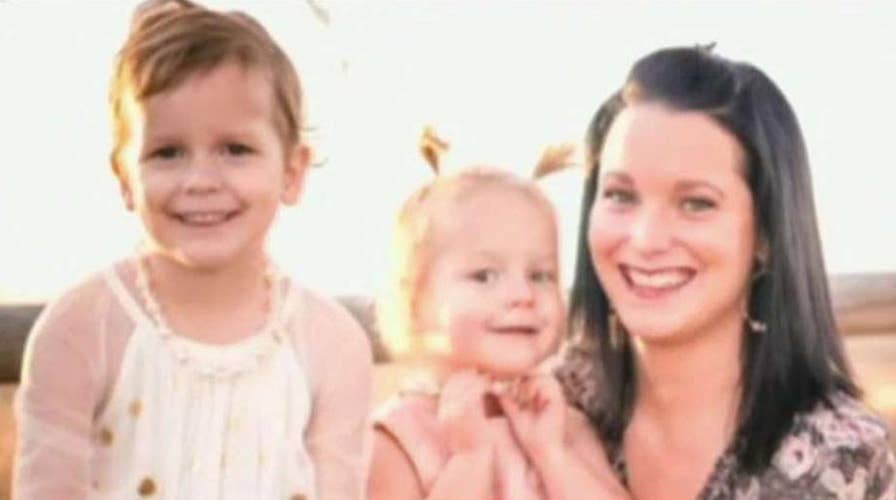Colorado man charged with murdering pregnant wife, daughters
Court documents reveal the bodies of two young girls were found submerged in oil; Jeff Paul reports.
For the second time in three years, the shocking killing of an unborn child has led captivated court watchers to ask if the death of a baby inside the womb counts as murder inside the court room.
In the latest case, Chris Watts is facing multiple counts of murder in the deaths of his pregnant wife, Shanann, 34, and two daughters, Bella, 4, and Celeste, 3 — but what about the Watts' unborn child?
Watts was charged Aug. 21 with nine felony counts, including three first-degree murder charges in the deaths of his wife and kids, though an arrest affidavit reveals he is now claiming his wife strangled the girls shortly after he requested a separation. Watts said he "went into a rage" and strangled his wife after witnessing her kill at least one of the children, according to the affidavit.
The Weld District Attorney's Office also charged Watts with two counts of murdering a child and three counts of tampering with a deceased human body. Only one charge, one count of unlawful termination of a pregnancy — a class two felony — involves the death of the Watts' unborn child, a baby boy Shanann once told family members she planned to name Nico.
COLORADO MAN CHARGED WITH MULTIPLE COUNTS OF MURDER IN KILLINGS OF PREGNANT WIFE, DAUGHTERS
Colorado is not among the 38 states with fetal homicide laws, according to the National Conference of State Legislatures. The state does, however, have penalty-enhancement laws to protect pregnant women.
"These laws are considered different than fetal homicide laws because they do not create a separate criminal charge for the loss of the fetus," the NCSL states on its website. "The laws in these states consider the loss of or harm to a fetus in relation to the pregnant woman or her pregnancy."
In Colorado, there are three specific criminal statutes that can lengthen prison sentences if someone intentionally harmed a woman the assailant knew was pregnant.
Former Boulder County District Attorney Stan Garnett told Denver7 it's "virtually impossible" under Colorado's statutes to bring a homicide against someone who kills an unborn child.
“Colorado requires that the child live outside of the mother’s womb independently and then be killed as a result of something that occurs then," Garnett explained to the news station.
This is the second major case that has sparked a debate about fetal homicide laws — and whether the state should adopt it.
Republican lawmakers last tried to change the law in 2015 when a Boulder County woman named Dynel Lane was charged with attempted murder and unlawful termination of a pregnancy for cutting open a pregnant woman's belly and removing her unborn child. Prosecutors said they could not charge Lane with murder because a coroner found no evidence the infant lived outside the womb.
State lawmakers in 2013 also allowed prosecutors to add extra felony charges against anyone who commits a crime that causes the death of a fetus.
While a murder of an unborn child will not result in a homicide charge, it can play a part in whether the suspect faces life in prison or the death penalty.
Denver defense attorney Craig Silverman told the Daily Camera that could be one of the determining factors as to whether Weld County District Attorney Michael Rourke will go for the death penalty in Watts' case.
"It's a statutory aggravating factor for the death penalty in this case," Silverman told the newspaper. "So it's not irrelevant. That could be the death penalty argument somewhere down the road if Mr. Rourke wants to make it."
The Associated Press contributed to this report.









































